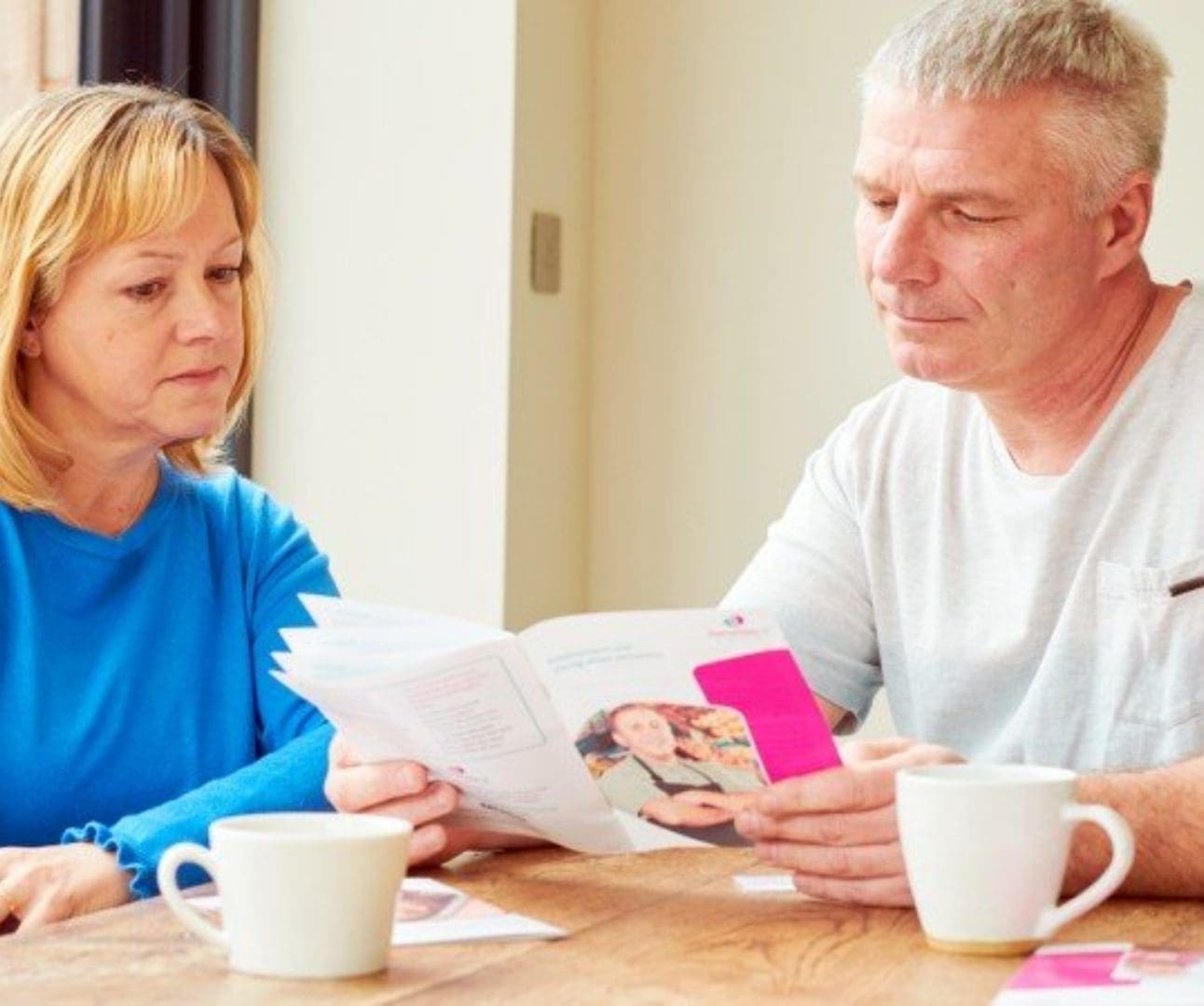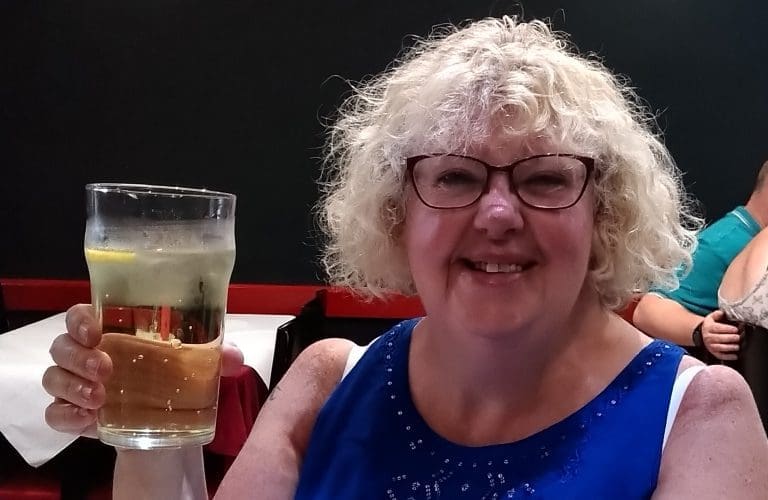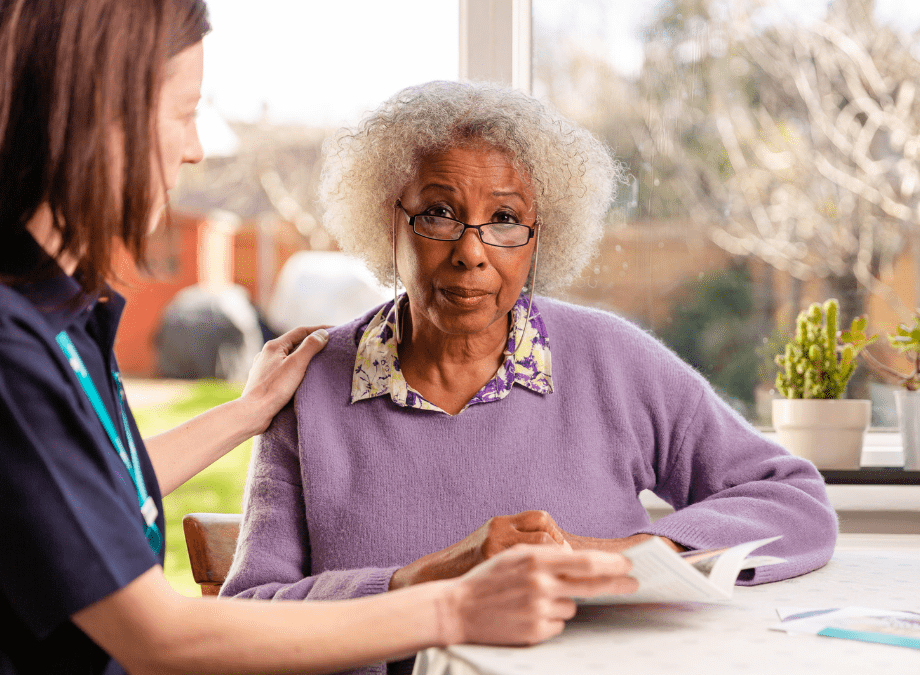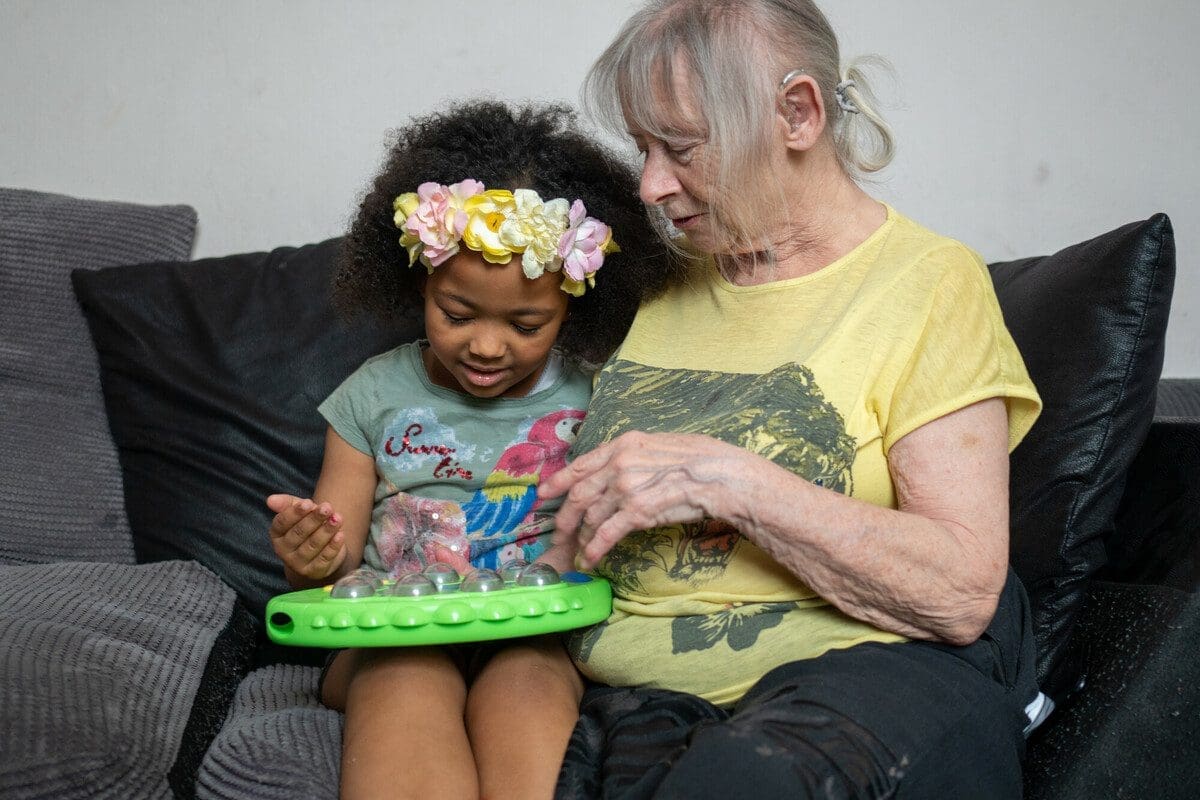
Young onset dementia
Information and resources about young onset dementia, where symptoms develop before the age of 65.
Ex-nurse Tracey was diagnosed with posterior cortical atrophy aged 45. She lives alone and is determined to remain positive and active.

My name is Tracey, I was diagnosed with posterior cortical atrophy (PCA) in 2015, aged 45, after a long fight to get anyone to believe there was anything wrong with me. It all began in 2014, when I started to fall over a lot. I think I fell over about 30 times in that year. I mentioned it to many people, but I have always been accident prone and they thought I was just being more of a klutz than usual so didn’t think anything else about it.
Towards the end of the year, I started to forget how to spell certain words or write numbers down and I got slightly concerned. I was working as a community staff nurse and had to fill out data to prove that I had seen patients in my working day. This data was mostly numbers, and I was getting behind as I was finding it hard to remember how to write things. Then I went with a colleague to do a syringe driver and I couldn’t remember what to do. But I just thought I was under stress, although I hadn’t really forgotten anything before.
In 2015, I fell over a number of times and in March had my last bad fall. I fell and couldn’t get up. I couldn’t remember how. Someone helped me and wanted to call an ambulance but I was working so went back to work, and then couldn’t remember falling over afterwards. In May of that year, I went into hospital because I was having a variety of symptoms – pins and needles, slurred speech, found it hard to walk, falling, memory lapses etc. I thought I had MS, the hospital thought I’d had a stroke and my doctor thought I had a brain tumour because all the symptoms were the same for each one.
I had a CT scan and MRI of the brain, both came back clear. Bloods were also taken – all clear. I saw a neurologist who told me he didn’t know what was wrong but thought it may be atypical migraine and put me on tablets. But he also told me that it could be stress related or maybe depression. I asked him if my memory would come back. No answer.
So, I went back to work and one day myself and a colleague were learning how to use a new machine. My memory used to be hot – show me something once and I would pick it up. After a week of showing me, I still couldn’t remember how to use it and she said something like, “There is something wrong with you.” I spoke to my boss about it and my doctor but they both just thought I was under stress, although my boss did suggest being referred to a memory clinic. My doctor was not helpful at all. So, I saw a different doctor who referred me to a memory clinic. I failed the first memory test, and then the second memory test I had two months after the first one.
I saw my consultant in October 2015 who told me he thought I had Alzheimer’s disease, but wanted to get bloods and others scans done first to rule other things out. In December 2015, I finally got a diagnosis of PCA. I had a SPECT MRI which showed brains cells missing from the back of my brain and the right side of my brain. I was 45 years old.
I felt relieved to be quite honest. It is always better to know rather than not. You always think of the worse scenario when you have a condition but when you live alone you have to think positively and adapt. I won’t let this dementia beat me just yet. I have told my consultant that I want to have at least 20-30 years before I go potty. Most of the time I forget I have dementia, then I get tired, and remember. My brain has to work twice as hard as a normal brain so it’s tiring.
But I always tell people not to give up. I retired as a nurse in May 2016 and stopped driving before that. The brain needs stimulation, so I try to keep busy and active. I get a happy medium by going to groups and out with friends and family. I also play word games daily and I have learnt new hobbies such as macramé and loom knitting. I do the odd online course and I like to read and do my garden. Plus I write poetry and write a blog, which I suppose is my way of keeping a journal.
I get involved in activist work and I am one of the dementia envoys for my local mental health trust, trying to make things better for patients and staff alike. I also do a lot of work for dementia charities
I don’t get thirsty or hungry with my dementia, so I have an Alexa device to remind me to drink every two hours throughout the day, and I make sure I eat regularly. I believe in the benefits of regular exercise so either walk or swim or do some sort of exercise at home.
In 2017 I had a further brain scan which showed that I had had a stroke and then in 2018, I had a mini-stoke (TIA). After that, my consultant referred me to neuro physios as my mobility wasn’t very good, and I also saw a speech therapist too.
But I love my life now. There are four rules of thumb that I try to abide by:
I used to see patients give up too easily when I looked after them, especially after receiving a diagnosis of a terminal condition. Life is for living to the best of your ability and not giving up. Sometimes it is hard to fight, and I get tired of it, but I am more scared of losing so that is what keeps me going.
I lost friends after my diagnosis, but the right ones stayed by my side, and I have met lots of lovely new ones.
Tracey lives in Folkestone, Kent. Read her blog and watch her in a short film about living with young onset dementia.

Information and resources about young onset dementia, where symptoms develop before the age of 65.

Help us raise vital funds, improve care and support for families facing dementia and spread the word about our specialist dementia nurses.

Sharing your story with Dementia UK can help to inspire and reassure others who may be going through similar things.